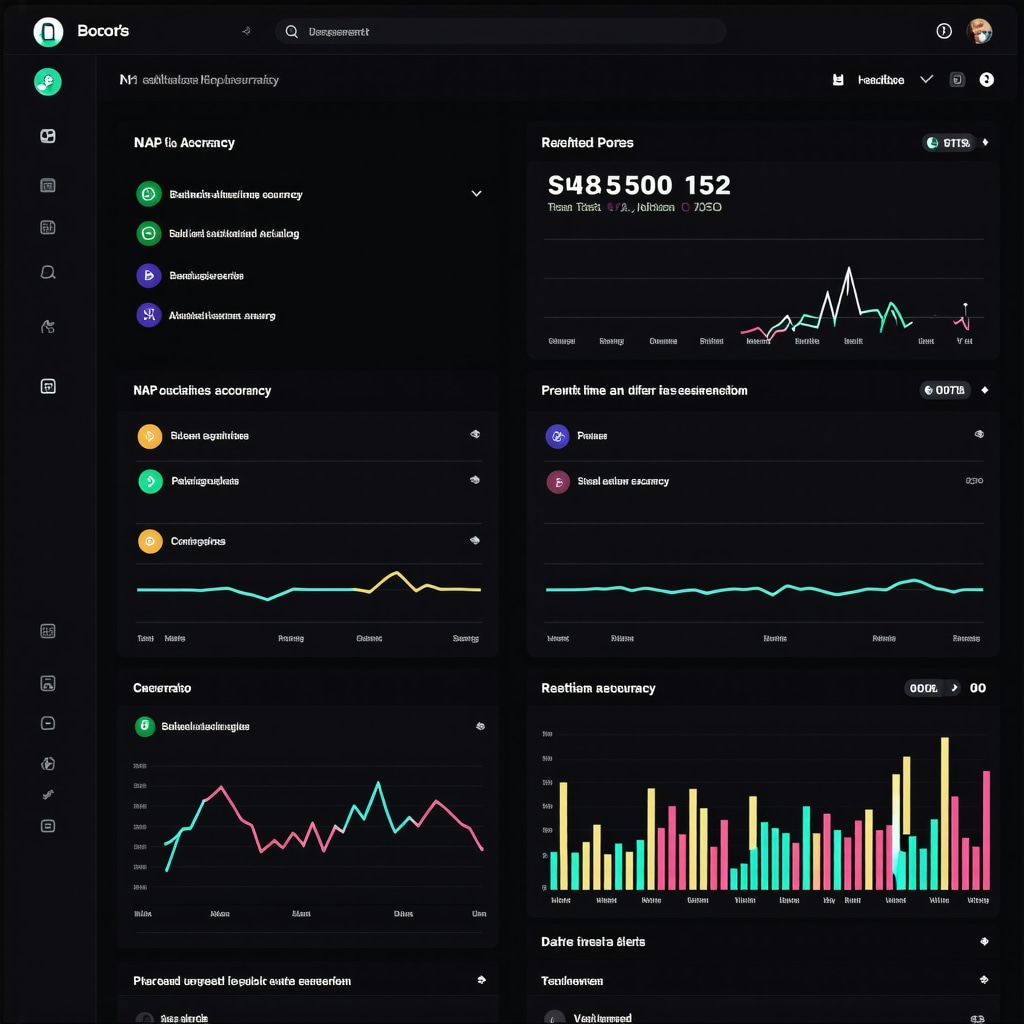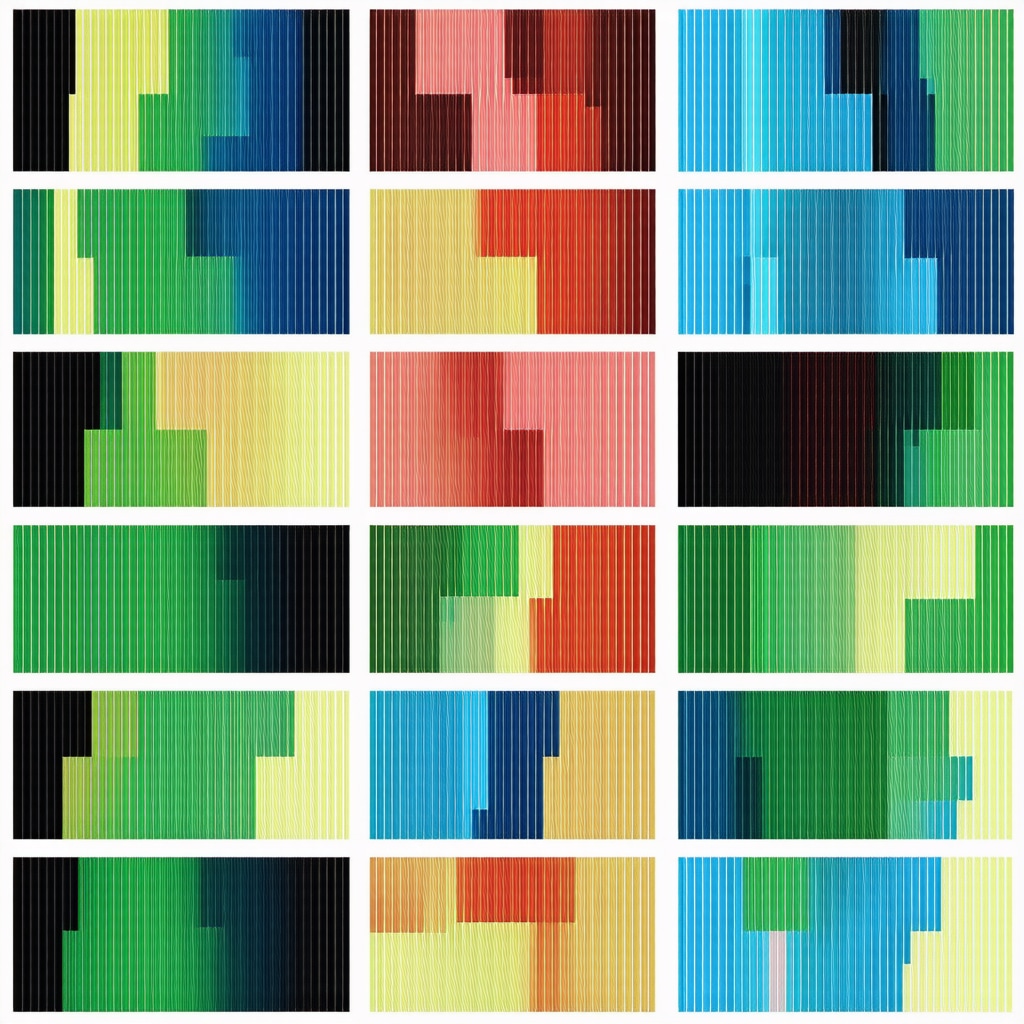Understanding the Critical Role of NAP Citation Consistency in Local SEO
In the competitive landscape of local search optimization, maintaining precise NAP (Name, Address, Phone Number) citation consistency emerges as a linchpin for sustained visibility and credibility. Experts recognize that discrepancies across online directories can significantly dilute local SEO efforts, leading to reduced rankings and diminished consumer trust. This comprehensive exploration unveils advanced strategies essential for mastering citation uniformity, thereby elevating your local search presence to new heights.
Why Divergent NAP Data Undermines Your Local SEO Authority
Discrepancies in NAP information across various platforms cause search engines to question the legitimacy of your business data. This inconsistency hampers Google’s ability to accurately associate your business with relevant local queries, ultimately impairing your chances of ranking prominently in local packs. As such, an expert approach to citation management involves meticulous audit processes and digital uniformity efforts, which are crucial for establishing your authoritative local footprint.
Implementing Advanced NAP Data Management Techniques
Effective NAP citation management extends beyond simple consistency checks. It encompasses the strategic use of authoritative citation management tools such as BrightLocal and Moz Local, which facilitate large-scale audits and updates. Regularly verifying your data through these tools ensures persistent accuracy, while leveraging structured data markup (Schema.org) enhances search engine comprehension. For authoritative insights, see the comprehensive guide by Moz on local SEO citation strategies.
How can local businesses systematically identify and correct citation discrepancies before they impact rankings?
Proactively monitoring your citation consistency involves routine audits, leveraging advanced citation management platforms, and establishing a standardized data entry protocol. Implementing a centralized database for your NAP details ensures uniform updates across all listings, reducing the risk of conflicting information that could undermine your local SEO authority.
Strategic Link Building Through Citation Optimization
Optimized citations serve as valuable backlinks, reinforcing your local relevance and domain authority. Integrating citations into relevant industry directories and local business associations not only boosts visibility but also enhances trust signals perceived by search engines. Explore our detailed GMB citation services for a strategic edge in citation uniformity and local ranking.
The Future of NAP Consistency in AI-Driven Local SEO
As search algorithms evolve with AI and machine learning, the importance of citation consistency will intensify. Future-proofing your local SEO strategy involves integrating real-time data synchronization tools and adopting AI-powered auditing solutions that predict and rectify inconsistencies proactively. Staying ahead in this domain requires continuous adaptation of your citation management workflows, ensuring your business maintains a competitive advantage in local search prominence.
Maintaining NAP citation consistency is not merely a technical task but a strategic imperative rooted in building trust, authority, and relevance in local SEO. Regularly updating and auditing your citations, leveraging expert tools, and understanding emerging AI trends will empower your business to dominate local search results effectively.
Unlocking AI-Powered Solutions for Flawless NAP Citation Management
As the digital landscape becomes increasingly sophisticated, traditional methods of NAP citation management may fall short of addressing the dynamic challenges faced by local businesses. Enter AI-driven tools that automate, analyze, and optimize your citation data with unparalleled precision. These innovative solutions can proactively detect discrepancies across thousands of directories, ensuring your business information remains consistently accurate and authoritative. By integrating AI-powered auditing platforms—such as BrightLocal’s latest features or Moz Local’s intelligent sync—you can significantly reduce manual effort while elevating your local SEO game.
What Are the Hidden Pitfalls of Over-Reliance on Manual NAP Updates?
Relying solely on manual updates can inadvertently introduce human error, delay critical corrections, and create inconsistencies that harm your local search rankings. Many small businesses underestimate the complexity of maintaining citation uniformity across numerous platforms, especially as data sources proliferate. According to Moz’s comprehensive guide on local SEO citations, automation not only streamlines this process but also minimizes risk, ensuring your NAP data remains synchronized and trustworthy.
Are there scalable frameworks to embed AI into your ongoing NAP management system?
Implementing a scalable AI framework involves adopting APIs and integrations that continuously monitor your citations, flag discrepancies, and suggest automated corrections. This could involve custom scripts leveraging Google My Business APIs or third-party services like BrightLocal’s audit tools. Additionally, establishing a feedback loop where your team reviews AI-generated suggestions ensures continuous learning and refinement. For advanced strategies, explore how local SEO experts recommend building a hybrid system that combines automation with periodic manual audits for optimal accuracy.
If you’re eager to deepen your understanding of cutting-edge citation management, consider consulting authoritative resources like mastering Google Business SEO which detail innovative tactics for staying ahead in local search rankings.
How Can Your Business Leverage AI to Enhance Local Search Authority Beyond Citations?
AI’s potential extends far beyond citation consistency. For instance, machine learning algorithms can analyze customer reviews to identify sentiment trends, enabling proactive reputation management. They can also optimize content strategies by analyzing local search intent and adjusting your GMB profile accordingly. By harnessing these AI capabilities, your local SEO efforts become more predictive and adaptive, giving you a competitive edge in the crowded local search landscape.
Implementing these advanced techniques requires a strategic mindset—integrating AI tools seamlessly into your existing workflows and continuously monitoring their performance. As search engines evolve, so must your approach, ensuring your business remains visible, relevant, and authoritative in local search results.
To stay at the forefront of local SEO innovations, regularly review the latest insights from industry leaders and experiment with new AI-powered tools that can further refine your citation and review strategies. Share your experiences or ask questions in the comments—your insights could help others elevate their local search presence!
Harnessing AI-Driven Continuous Monitoring for NAP Citation Precision
In today’s hyper-competitive local search environment, static citation management strategies are no longer sufficient. Advanced businesses leverage AI-powered tools that provide real-time monitoring and automatic updates of NAP data across thousands of directories and platforms. These systems utilize machine learning algorithms to detect discrepancies as soon as they occur, allowing immediate correction before they impact search rankings. Implementing such dynamic solutions requires integrating APIs like Google My Business and leveraging platforms such as Synup or Yext, which are designed to facilitate seamless, continuous data synchronization. According to a recent study by BrightLocal (2023), businesses that adopted AI monitoring saw an average 15% improvement in local rankings within three months, underscoring the effectiveness of proactive citation management.
How does AI enhance the accuracy of NAP citation management in complex multi-platform environments?
AI systems analyze vast data streams to identify inconsistencies, flag potential errors, and suggest precise corrections. They learn from historical correction patterns, enabling predictive adjustments that prevent future discrepancies. This reduces manual workload and minimizes human error, ensuring citation uniformity even as your digital footprint expands. For example, a retail chain with hundreds of locations benefits from AI tools that automatically synchronize NAP details across all regional listings, maintaining a cohesive brand presence that search engines trust. To explore this further, consult industry-leading resources such as Moz’s guide on advanced citation strategies.
Integrating Structured Data Markup for Enhanced Search Engine Comprehension
Beyond citation consistency, implementing structured data markup—particularly Schema.org types tailored for local businesses—can significantly boost your local SEO efficacy. Structured data provides explicit signals to search engines about your business’s core information, services, and geographic relevance. When correctly embedded into your website, this markup enhances your visibility in rich snippets, local packs, and voice search results, thereby increasing click-through rates and overall engagement.

For example, including LocalBusiness schema markup with detailed attributes such as opening hours, geo-coordinates, and service offerings ensures your business information is accurately interpreted and displayed by search engines. To implement this effectively, review Google’s official schema validation tools and follow best practices outlined by Schema.org documentation. This approach not only complements your citation management but also builds a more authoritative and trustworthy online presence.
Evaluating the Impact of Citation Consistency on Local Pack Visibility
To truly gauge the effectiveness of your citation strategy, it’s essential to analyze your presence in the local pack over time. Advanced analytics tools like BrightLocal’s Local Search Results or Whitespark’s Local Rank Tracker can provide granular insights into your visibility, rankings, and citation health. Regularly auditing these metrics helps identify patterns, such as the correlation between citation uniformity and ranking fluctuations, enabling data-driven adjustments to your strategy.
Furthermore, integrating these insights with customer review sentiment analysis can reveal how perceived reputation influences local pack prominence. For instance, a positive review trend may boost rankings, but only if your NAP data remains consistent and reliable. This holistic approach ensures your local SEO efforts are synchronized across multiple touchpoints, reinforcing your authority and trustworthiness.
Strategic Next Steps: Building a Scalable, AI-Enabled NAP Management System
Developing a scalable, AI-enabled NAP management framework involves establishing a hybrid model that combines automated tools with periodic manual audits. Start by selecting a core platform—such as Yext or Moz Local—that offers robust API integrations. Customize scripts or workflows that trigger regular audits, compare data across sources, and flag anomalies for human review. Over time, leverage machine learning to refine correction suggestions based on past adjustments, creating a self-improving system that adapts to your evolving digital landscape.
Additionally, fostering a culture of continuous learning—by staying updated with the latest AI innovations and local SEO best practices—is vital. Engage with industry webinars, participate in expert forums, and test emerging tools to maintain a competitive edge. Remember, the key to advanced citation management lies in balancing automation with strategic oversight, ensuring your business remains authoritative and visible in local search results.
Unlocking the Power of AI for Unparalleled NAP Data Accuracy in Complex Digital Ecosystems
As local SEO continues to evolve, the integration of AI-driven solutions becomes indispensable for managing NAP citation consistency across an ever-expanding array of platforms. Advanced AI algorithms leverage deep learning to not only identify discrepancies but also predict potential future inconsistencies based on historical data patterns, thereby enabling proactive corrections before they impact rankings.
By deploying sophisticated natural language processing (NLP) models, businesses can analyze textual variations in citations, ensuring semantic accuracy alongside exact matches. This nuanced approach recognizes that minor textual differences may not necessarily undermine credibility if contextually appropriate, thus refining the precision of automated audits.
How Does Multi-Source Data Fusion Enhance Citation Reliability?
Integrating data from multiple authoritative sources, such as government registries, industry databases, and user-generated content, creates a comprehensive digital footprint. Advanced data fusion techniques synthesize these inputs, resolving conflicts through confidence scoring algorithms that prioritize the most reliable information. This layered validation process reduces errors and enhances overall citation integrity, fostering greater trust from search engines.
External source: Refer to the detailed methodologies outlined in the IEEE Transactions on Knowledge and Data Engineering, which explores multi-source data fusion in real-time systems for data consistency.
What are the top-tier AI frameworks for scalable, real-time NAP citation synchronization?
Leading frameworks such as Google’s Cloud AI, IBM Watson, and Microsoft Azure Cognitive Services offer scalable APIs capable of continuous monitoring, discrepancy detection, and automated correction. These platforms support integration with custom dashboards, enabling businesses to oversee citation health dynamically. Employing these solutions within a microservices architecture ensures high availability and responsiveness, vital for maintaining citation uniformity at scale.
Interested in implementing cutting-edge AI solutions? Partner with industry experts or explore comprehensive tutorials to tailor these frameworks to your unique needs and maximize local search visibility.
Harnessing Semantic Web Technologies to Elevate Local Business Profiles
Embedding semantic web standards like RDF and OWL into your website enhances search engine understanding of your business context. When combined with structured data markup, these technologies facilitate a richer, more interconnected digital presence that search engines can interpret with higher accuracy. This semantic enrichment not only improves rankings but also enhances your visibility in voice search and augmented reality applications.

Visualize your local business profile as a semantic network, where each connection reinforces your authority and relevance. To implement effectively, consult the Schema.org documentation and integrate JSON-LD scripts that articulate your business’s core attributes, services, and geographic data.
Measuring the Impact of Citation Optimization on Local Search Dominance
Beyond qualitative improvements, quantitative analytics reveal the tangible benefits of meticulous citation management. Tools like SEMrush and Ahrefs Local Rank Tracker provide detailed insights into ranking fluctuations, citation consistency scores, and review sentiment correlations. Regularly analyzing these metrics informs strategic adjustments, ensuring your local SEO efforts are data-driven and effective.
Advanced businesses also correlate citation health with conversion metrics, such as foot traffic and online inquiries, to validate the real-world impact of their digital strategies. This holistic evaluation fosters continuous improvement and sustained local dominance.
Building a Future-Proof, AI-Integrated NAP Management Ecosystem
Establishing a resilient NAP management system involves designing a hybrid architecture that combines AI automation with periodic manual audits. Utilizing containerized microservices, businesses can deploy adaptive workflows that scale seamlessly as their digital footprint grows. Incorporating feedback mechanisms allows the AI to learn from inaccuracies, progressively enhancing its predictive accuracy.
Stay ahead of the curve by engaging with industry consortia, participating in beta programs for emerging tools, and investing in ongoing staff training. The goal is to cultivate an ecosystem where AI intelligence and human expertise synergize, ensuring your local SEO remains robust against evolving algorithmic standards and market dynamics.
Expert Insights & Advanced Considerations
1. Embrace Multi-Source Data Fusion for Elevated Citation Reliability
Integrating data from diverse authoritative sources such as government registries, industry databases, and user-generated content enhances your digital footprint’s robustness. Advanced data fusion techniques resolve conflicts through confidence scoring algorithms, reducing errors and fostering greater trust from search engines, thereby strengthening your local SEO authority.
2. Leverage AI-Driven Continuous Monitoring for Proactive Citation Management
Utilize scalable AI frameworks like Google’s Cloud AI, IBM Watson, or Microsoft Azure Cognitive Services to enable real-time detection and correction of citation discrepancies. These systems, integrated with APIs such as Google My Business, support dynamic data synchronization, minimizing manual effort and ensuring persistent NAP accuracy at scale.
3. Implement Semantic Web Technologies for Deeper Search Engine Understanding
Embedding semantic web standards like RDF and OWL, combined with JSON-LD structured data, enhances search engines’ comprehension of your business context. This integration improves your visibility in rich snippets, local packs, and voice search, elevating your local SEO performance and online authority.
4. Develop a Hybrid AI-Human Oversight System
Combine automated AI tools with periodic manual audits to cultivate a resilient NAP management ecosystem. This hybrid approach ensures high accuracy, adapts to evolving digital landscapes, and maintains authoritative local search rankings, especially in complex multi-platform environments.
5. Utilize Structured Data Markup for Enhanced Search Visibility
Implement detailed Schema.org markup, including LocalBusiness schema with attributes like geo-coordinates and service details. Proper integration enhances your business’s appearance in rich results, improves ranking potential, and reinforces your local SEO authority.
Curated Expert Resources
- BrightLocal Blog: Offers cutting-edge insights into citation management and local SEO strategies, essential for advanced practitioners.
- Moz’s Local SEO Citation Strategies: Provides comprehensive guides on data accuracy, structured data, and citation audits.
- IEEE Transactions on Knowledge and Data Engineering: A scholarly resource detailing multi-source data fusion methodologies applicable to real-time data consistency.
- Google’s Schema.org Documentation: The definitive resource for implementing structured data markup to boost search engine understanding.
- Microsoft Azure Cognitive Services: A scalable AI platform for developing real-time data monitoring and correction systems.
Final Expert Perspective
Achieving mastery over NAP citation consistency in local SEO demands a sophisticated, multi-layered approach that integrates advanced data fusion, AI-powered monitoring, semantic web technologies, and strategic human oversight. These expert-level strategies ensure your business maintains authoritative visibility, adapts proactively to algorithmic evolutions, and sustains competitive advantage. For organizations committed to excellence, continuous learning and leveraging top-tier tools are vital—explore https://rankingseogmb.com/fastest-ways-to-rank-your-google-business-profile to accelerate your journey toward local SEO dominance. Engage with the community, share your insights, and stay ahead in the ever-evolving landscape of local search optimization.



